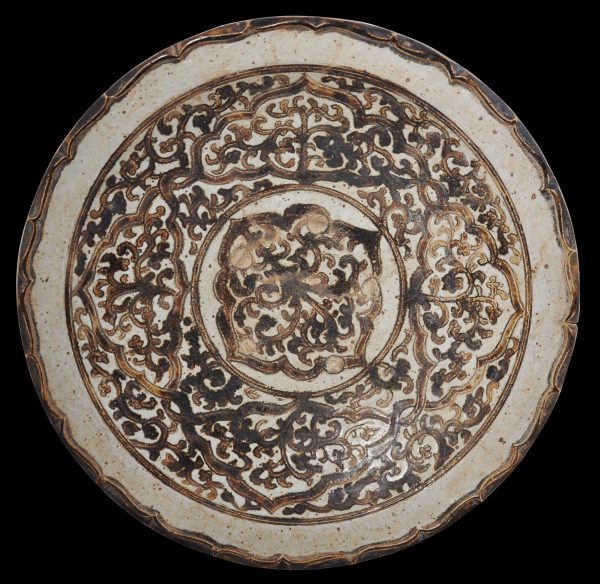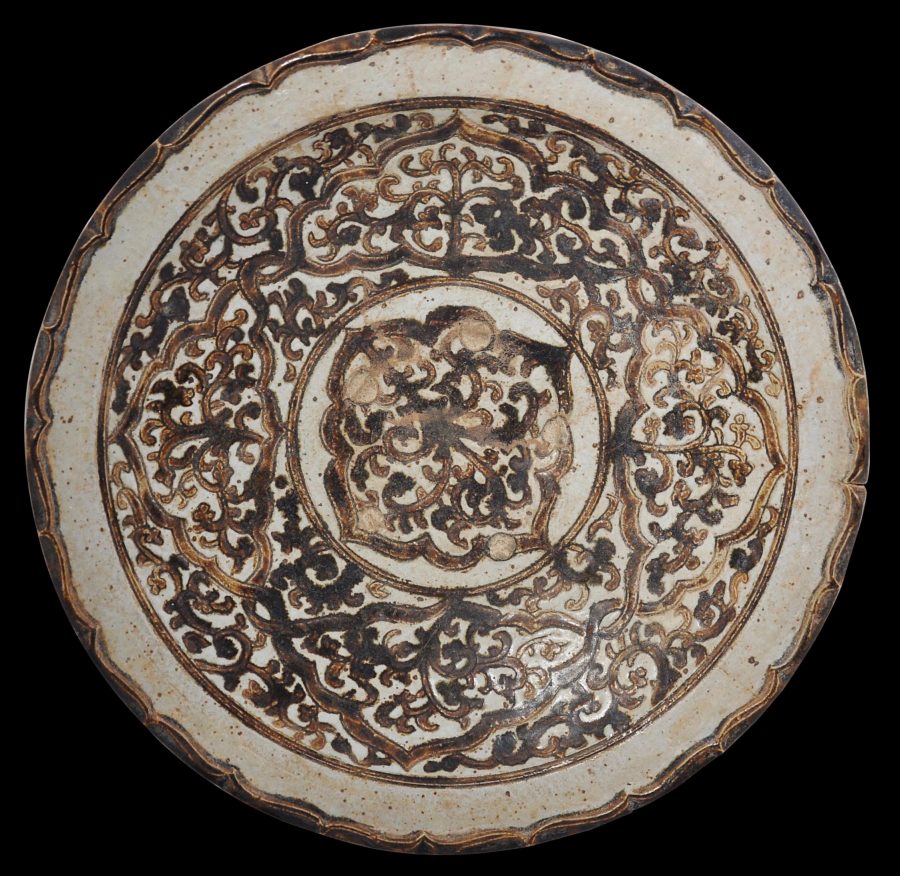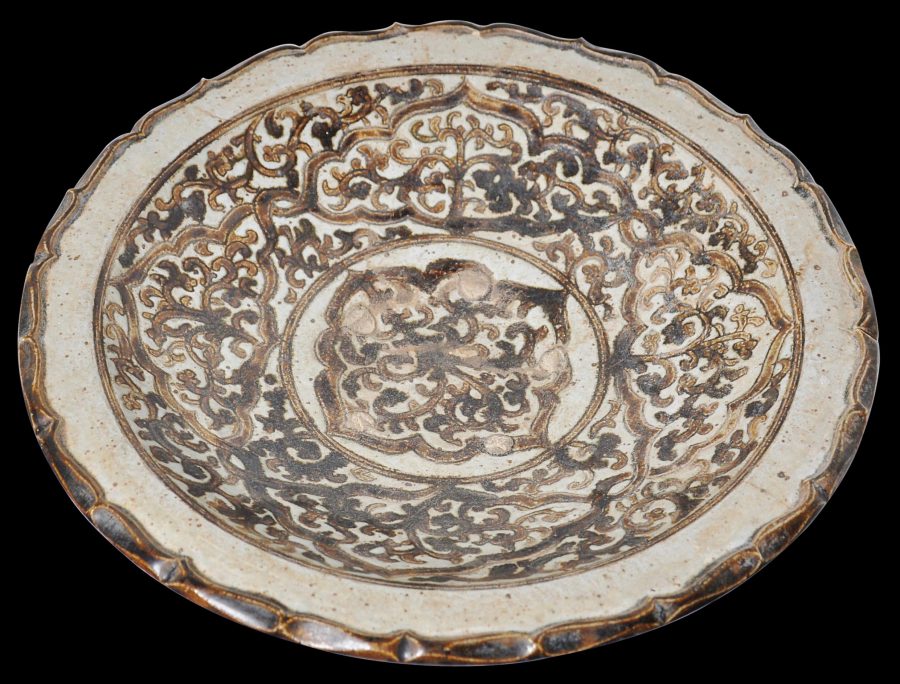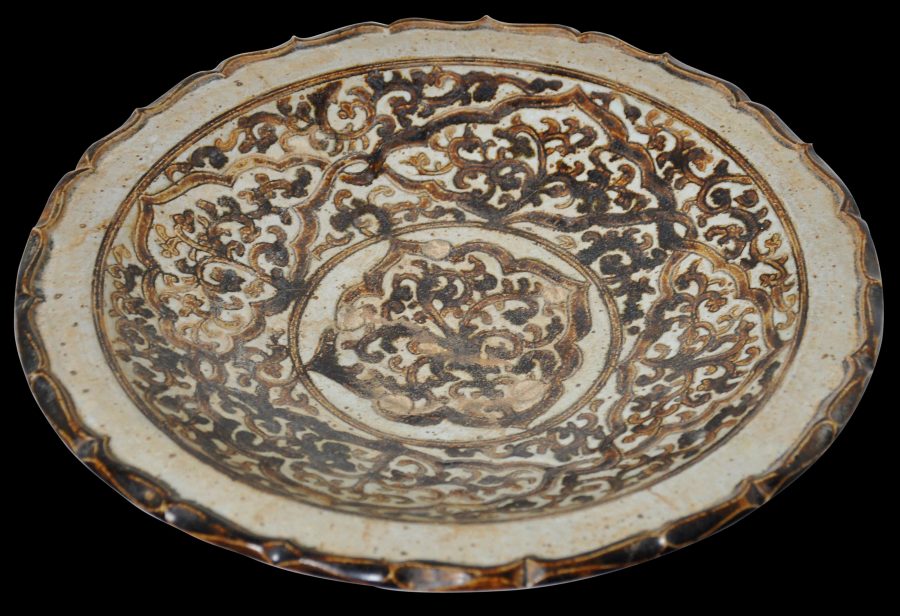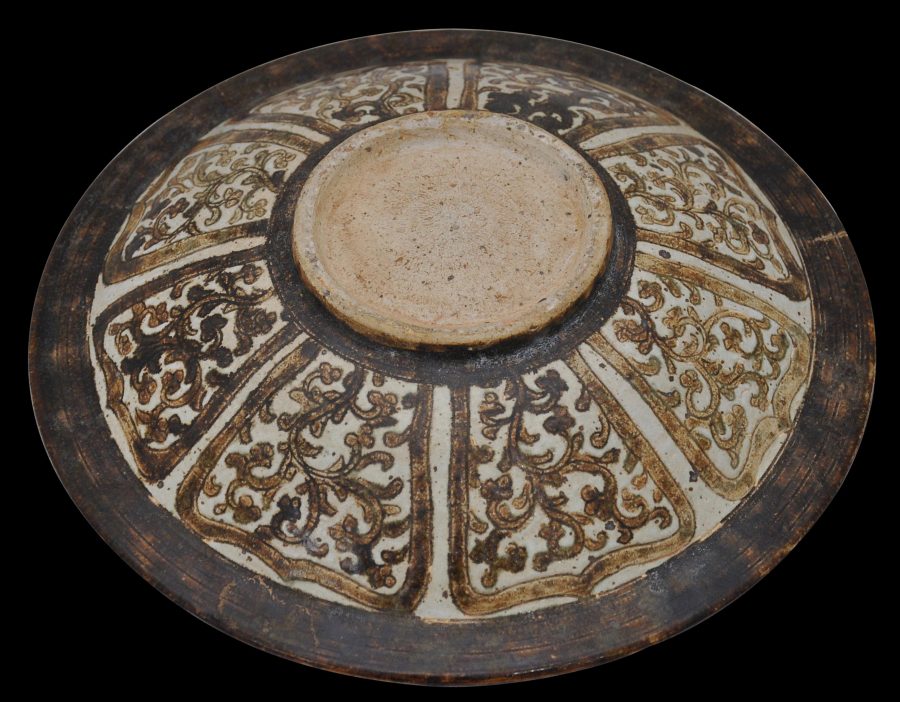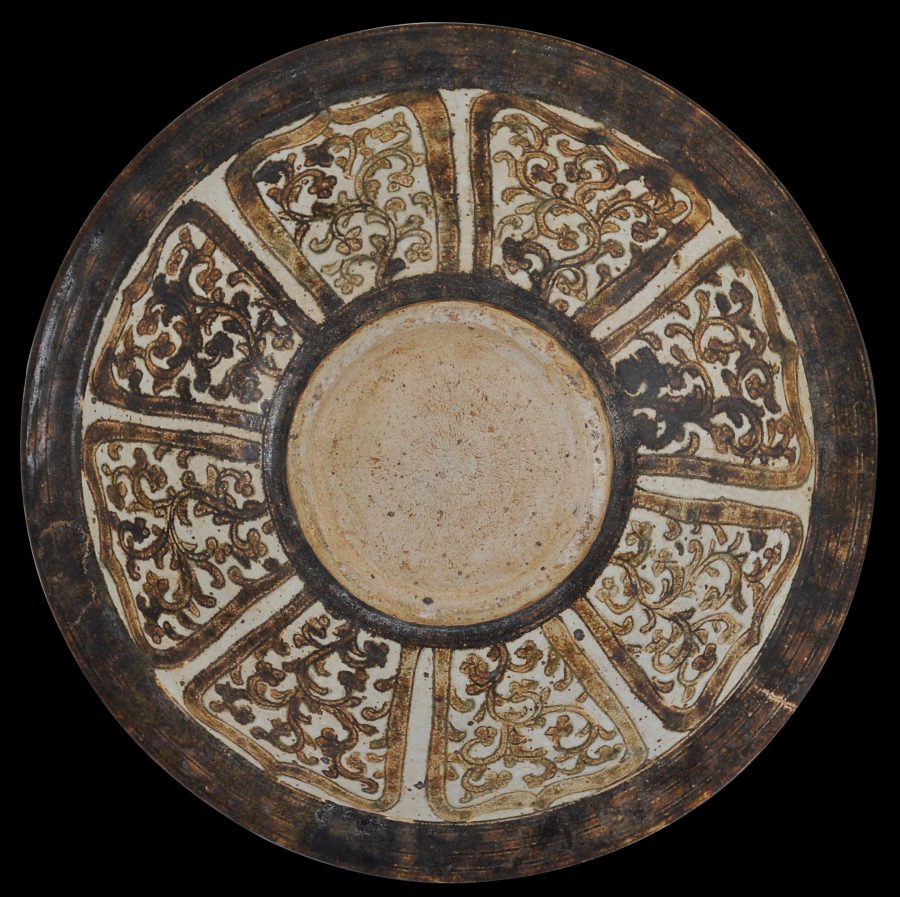This fine, large and rare plate dates to the 15th-16th century and most probably is from kilns at Si Satchanalai in Sawankhalok in northern Thailand. Possibly, it was made for the Islamic market.
The dish is shallow with a broad rim and sits on a low ring foot.
It has a superb lotus petal pattern rim which appears to be influenced by Vietnamese trade ceramics of the period. It is also intricately incised with low relief and decorated in brown and cream glaze with Indian lotus scrolling. The scrolling on the underside of the rim is within eight petal-like cartouches.
Items with similar incised lotus scroll motifs are illustrated in Thammapreechakorn et al (1996, p. 254), Brown (2009, p. 108), Guy (1993, p. 101, 107), and Rooney (2013, p. 264) but the example here probably is superior to them all.
The plate is in fine condition and is free of chips and restoration. There is an old, stable hairline crack that runs half-way across the plate. The interior of the dish has five round stacking marks from the kilning process. Overall, the dish is a rare example with an unusual and highly decorative rim.
References
Brown, R., Southeast Asian Ceramics Museum, Bangkok University, Bangkok University Press, 2009.
Guy, J., Thai Ceramics: The James and Elaine Connell Collection, Asian Art Museum of San Francisco/Oxford University Press, 1993.
Richards, D., South-East Asian Ceramics: Thai, Vietnamese, and Khmer – From the Collection of the Art Gallery of South Australia, Oxford University Press, 1995.
Rooney, D., Ceramics of Seduction: Glazed Wares from Southeast Asia, River Books, 2013.
Stevenson, J. & J. Guy, Vietnamese Ceramics: A Separate Tradition, Art Media Resources, 1997.
Thammapreechakorn, P., S. Lertrit & K. Pinsri, Ceramic Art in Thailand, Osotspa Co., 1996.


